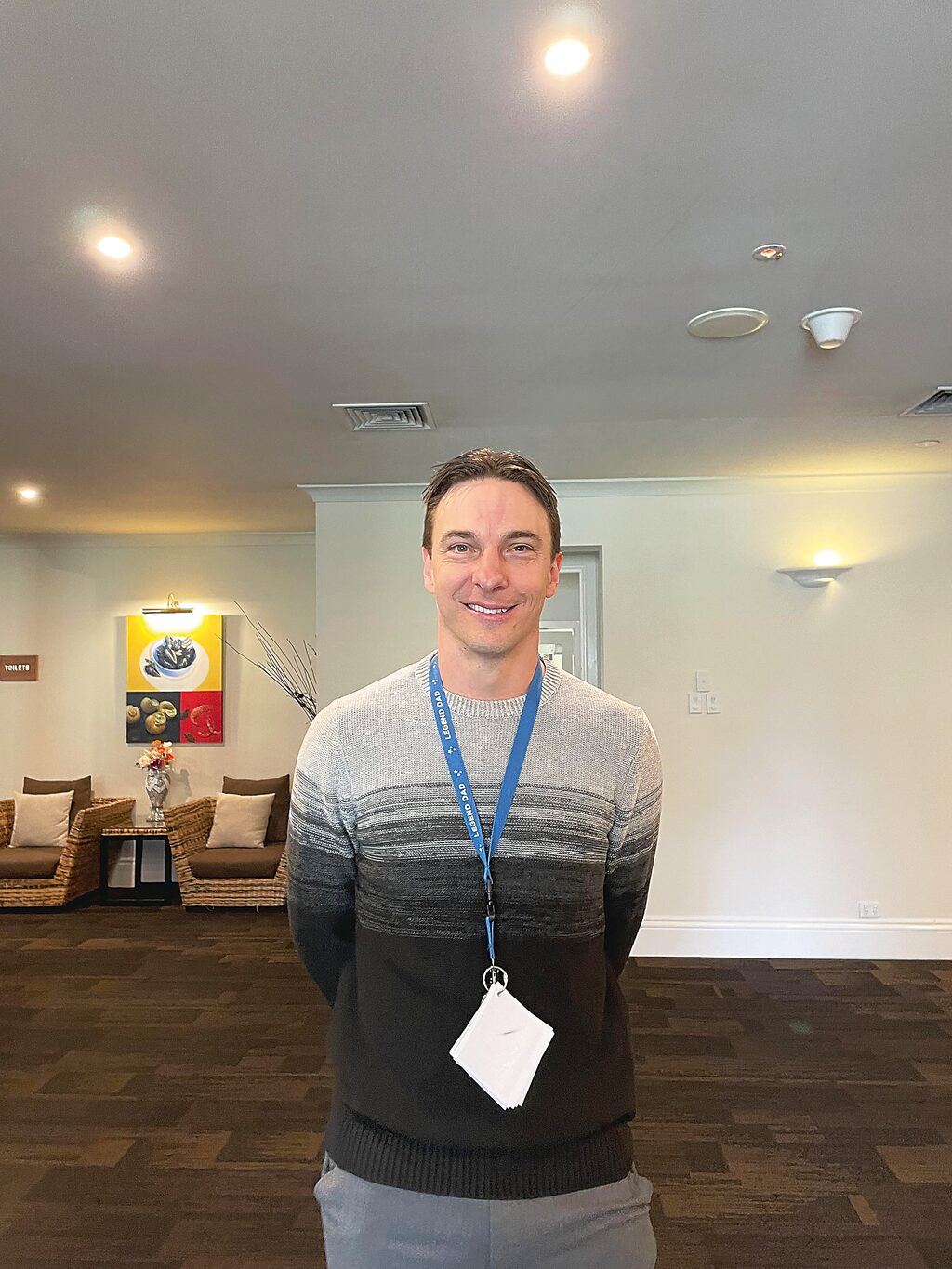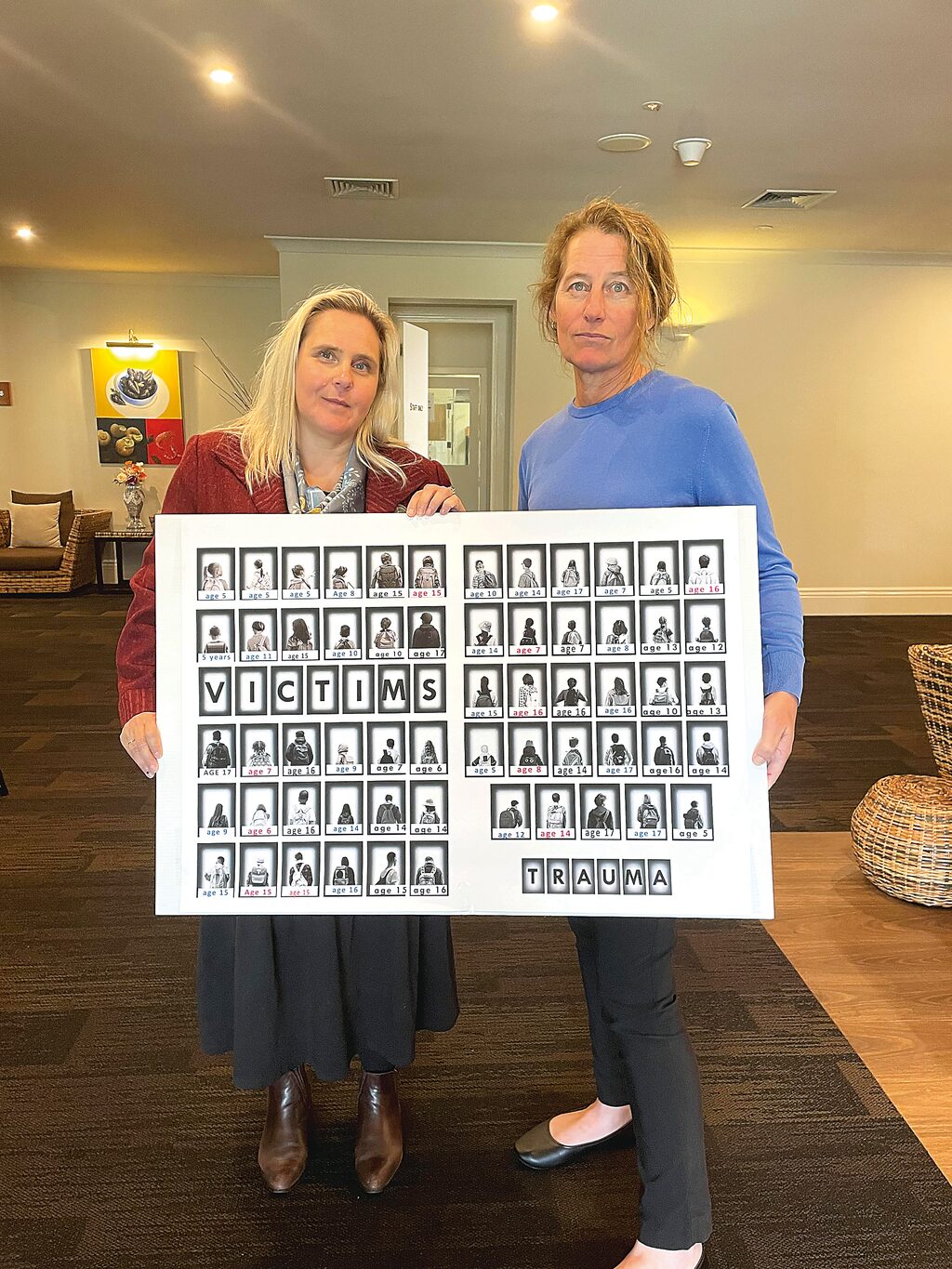By ZAIDA GLIBANOVIC
FEELING burn-out, overworked and overwhelmed is what education staff reported to the state education inquiry, while parents described harrowing accounts of misconduct to a parliamentary committee at a hearing held at Traralgon Century Inn last Wednesday, March 27.
Many local educators expressed their concerns as evidence to the inquiry into the state education system in Victoria.
The Legislative Council Legal and Social Issues Committee has a wide-ranging terms of reference for its probe into learning at government schools from Prep to Year 12.
Stephanie Feldt from Albert Street Primary in the heart of Moe gave a heartfelt testimony, citing issues with staff wellbeing and special needs support.
“The inquiry into the state schools reveals significant challenges,” Ms Feldt said.
With 58 per cent of Albert Street Primary School students needing extra support due to special needs, the Grade 5/6 teacher said the staff not only deal with behavioural issues frequently, but in their classroom duties must take special care and even ensure children are medicated.
“Many students with disabilities in the Latrobe Valley schools lack access to crucial support,” Ms Feldt said.
The teacher finds herself in a school where parents who often come from a low socioeconomic background are unable to provide their children with external support for their special needs such as speech pathology, paediatrics and therapy.
Ms Feldt said the school was not fortunate enough to have the funding to hire an on-ground speech pathologist, and said the supply for specialists was not here in the Latrobe Valley.
With so many students needing special support, classroom teachers have had to take on the brunt of the work, which has no doubt contributed to their workload, Ms Feldt said.
“We’re putting a lot into our students, and that’s our job, but it is leading to teacher burnout … there’s not adequate support for our staff members,” she said.
Not only do students have special needs without adequate support, but teachers also aren’t being supported despite facing many challenges to their mental wellbeing, including frequent behavioural issues.
“A lot of staff are finding it difficult – having students swear at you every day or kick at you,” Ms Feldt said.
A recent Australian Education Union survey of thousands of public school teachers across Australia found that more than a third of teachers were planning on leaving the industry because of excessive workloads, low pay, and student behaviour.
“We’ve had to do a lot more and at capacity – you know you want to give your best to your school and that has definitely, led to one of our staff members burn-out,” Ms Feldt said.
The state government finally released the damning findings of the 2022 Teacher Supply and Demand Report last week.
The forecast demand for teachers is expected to outpace supply to 2028, with a shortfall of 5036 teachers expected over this period, according to the report.
Having worked in the private sector previously, Ms Feldt said there was a notable difference in funding and resources between state and private schools.
“Coming to Latrobe Valley after being to some of those affluent schools was a massive wake-up call,” she said.
With around nine support staff at a school with more than half of the school enrolments requiring special needs, Ms Feldt said the school needed more staff to efficiently provide a supportive educational space.
Voices for Special Needs, a group born from allegations of misconduct at Latrobe Special Developmental School, presented at the hearing.
A spokesperson, Leanne Vella, mentioned to the committee serious cases of school misconduct towards students with severe disabilities while in the care of the school.
“This is a school where the most vulnerable children go to school,” she said.
In 2021 the school was investigated by The Victorian Department of Education and Training, the investigation included accusations of manhandling of students with disability. The report was made alongside WorkSafe and Morwell Police.
“We have worked closely with the new school leadership of Latrobe SDS to implement the actions established in the independent Culture Review completed in 2021,” a Department of Education spokesperson said.
It is understood the independent consultant provided opportunities for all school staff to provide feedback and insights into their experience of the school culture.
The review recommended 10 actions. The department developed an action plan comprised of 34 actions, all of which were completed before the end of Term 4 2022, aside from 3 which were ongoing activities.
“The overwhelming majority of parents at Latrobe SDS are supportive of the staff and the work they do to support the learning and development of their children. Recent feedback from parents shows extremely high levels of satisfaction with Latrobe SDS among families,” a department spokesperson said.
But, according to Voices for Special Needs, there is around 60 alleged cases of misconduct by the Latrobe Special Developmental School, both historical and recent, with Ms Vella making the recommendations that special schools should be better monitored with CCTV and an inquiry authority.
The Department of Education said it was not aware of any new misconduct claims made against the school since the 2021 review was conducted
Kieran Kenneth, the principal of Yallourn North Primary School, and Anthony Rodaughan, the Kurnai College Principal, gave their accounts of what it’s like to lead schools in the current climate.

Having worked in education for the past 24 years, Mr Kenneth was excited by the opportunity to present at the committee hearing to voice his concerns on the teacher shortage.
“I do actually think that graduates need more time in schools,” he said.
In his submission, Mr Kenneth said there was an “unreasonable amount of planning” teachers do to comply with department expectations.
“We see teachers choose a more sustainable career out in another industry,” he wrote.
“Tertiary courses are not delivering the type of graduates we need. Schools spend a large amount of time building teachers that are ready to teach.
“They have poor curriculum knowledge, do not understand instructional models and have not been taught how to manage a classroom.”
Student disengagement was another major issue tabled at the hearing.
Kids are ‘chronically absent’ from the classroom, according to experts at the Media Centre for Education Research.
Since COVID, Australian attendance rates in schools have fallen drastically.
“School refusal is a major issue in my school as it is across the state,” Mr Kenneth said.
Estimates show that chronic absenteeism levels in schools reached 49.9 per cent in 2022, with between one per cent to five per cent of all students classed as severely absent.
“There are very few leavers to increase attendance when it drops off, as the reasons behind are generally to do with home dynamics rather than the individual,” Mr Kenneth said.
“When there is a high risk to student mental health, they are asked to go to Flynn at Latrobe Regional Hospital.”
Mr Kenneth said the stigma attached to the mental health ward at the hospital deters parents from accessing these supports.
Kurnai’s principal, Mr Rodaughan, echoed these sentiments. “The biggest issue I’ve had to deal with is mental health and wellbeing,” he said.
The school has implemented a program called ‘Hands-on Learning’, where disengaged students are brought out of the classroom for a day per week to do meaningful and life-skill-based tasks.
Mr Rodaughan spoke of the great value the program has had on at-risk youths, with grades and attendance often improving.
The state inquiry into the state education system was successfully approved after a motion to establish the inquiry was made in the parliament by Eastern Victoria MP, Melina Bath.
As a former state schoolteacher in Gippsland, Ms Bath is also a participating member of the committee undertaking the inquiry.
“It is important to unpack the issues in terms of listening to people in the field – to teachers and educators, to principals and school leaders, to school councils and, importantly, to parents and past and present students,” she said.
The Opposition has slammed the state government’s handling of the teacher crisis, after the release of the Teacher Supply and Demand report late last month.
According to the most current available data, vacancies increased to more than 26,000 in 2022, as a record number of teachers left the system.
Not only are teachers leaving the system, but there are not enough graduates looking to fill these voids, as the reports showed the number of applications per vacancy plummeted from 14.7 in 2021 to 5.3 in 2022 for primary schools and 6.4 in 2021 to 2.8 in 2022 for secondary schools.
The state government claims to have invested $1.6 billion in school workforce initiatives, but given the shortfall in teachers over the coming years, the Opposition has raised questions surrounding the effectiveness of the significant amount of taxpayers’ money spent on these programs.
The Shadow Minister for Early Childhood and Education, Jess Wilson, said these were shocking figures that will only mean worse educational outcomes for Victorian students.
“With ever growing vacancies, fewer applications and more teachers leaving the profession, it is now clear why Labor has kept this report secret for more than a year,” she said.
“This crisis is having a dire impact on students’ ability to learn and maximise their education. Students don’t teach themselves, and as a result of Labor’s teacher shortages, there are classrooms in Victoria without a permanent teacher.”
Though local educators gave concerning evidence to the committee, they remained optimistic that the inquiry findings will be able to amount to real change.












